Game: “Everspace 2”
Everspace 2
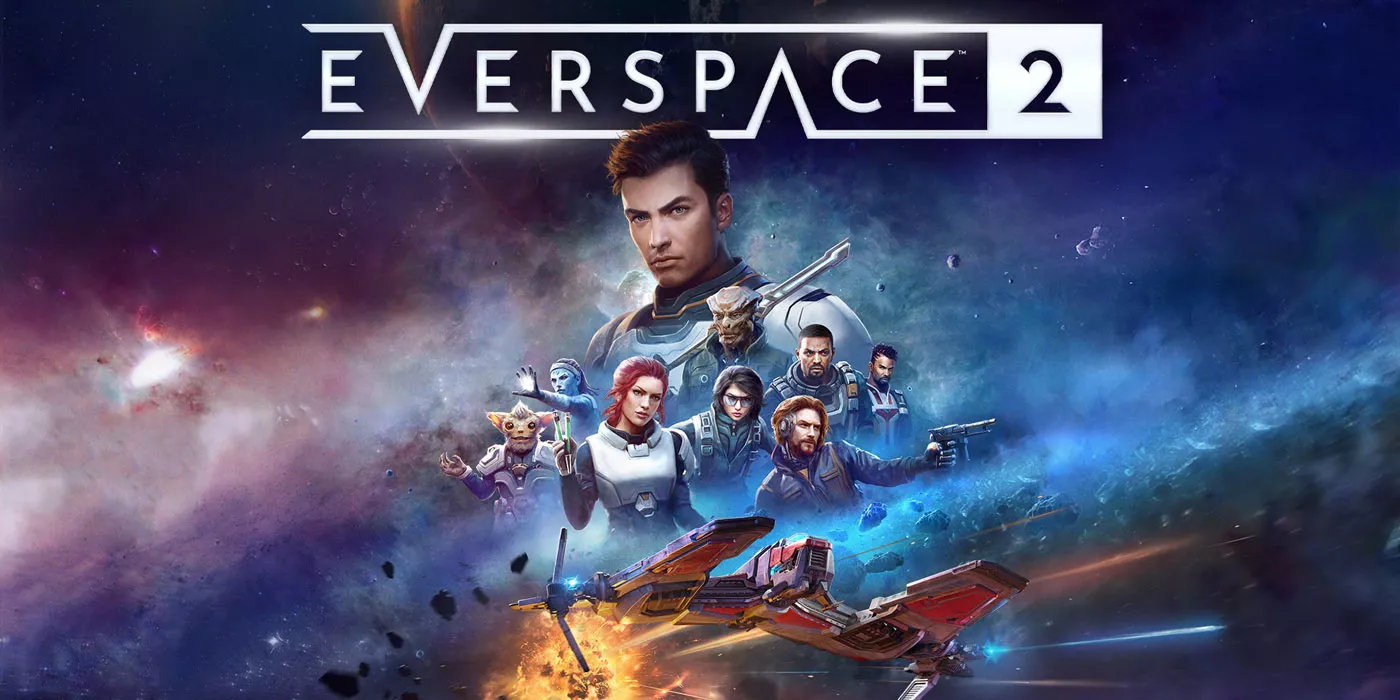

Everspace 2 is a space combat game from Rockfish, the followup to the successful run-based roguelite Everspace (2017), expanding the original game’s core gameplay into a more traditional narrative structure. The game was released on PC earlier this year but has just made the jump to current gen consoles at the tail end of the summer. It’s a solid shooter and easy recommend to someone coming from the like of No Man’s Sky seeking something a bit more combat-focused, but a harder sell to anyone with experience in the more simulation-adjacent space of the like of Elite: Dangerous. Everspace 2 instead acts more as a gateway drug to those interested in the concept of a Serious Space Sim™, but cautious about jumping in.
At A Glance
| EVERSPACE 2 | |
| Positives | + Fun arcade action + Big world(s) to explore + Lots of customisation options |
| Negatives | – Slow paced opening – By-the-numbers story – Not much depth |
| Overall | 7 /10 |
| Played On | PS5 |
| Also Available On | PC, Xbox Series X|S |
| Find out about our scoring policy here. | |
To get it out of the way early, Everspace 2’s greatest sin is that it thinks much more highly of its narrative than is perhaps warranted. Early on the game will frequently stop you so it can exposit more story at you, none of which is delivered particularly well. You play as a generic, brown-haired white (space) American guy in his early-to-mid-twenties, who you will recognise from ten thousand other mid-budget action games of the last… well, forever basically. All rough edges or interesting personality quirks have been sanded off to make sure that you, statistically a brown-haired white (non-space) American guy in his early-to-mid-twenties, can easily identify with this character. Honestly, I don’t mind a game giving me a set character – some of the best experiences I’ve had in video games have been with proper authored characters, even those fitting the mould of that stereotyped video game guy – but please, developers, I beg you, if you’re going to give me an authored character, at least have the decency to actually write them. I can see no reason at all the game couldn’t have let you have some input into your character – you’re going to spend a fair amount of time with them, after all, and it’s a great shortcut to building an immediate relationship with the protagonist.
Once given a little time to develop organically, the story and setting themselves aren’t too bad, but nothing here is going to set the world on fire. There are some interesting characters and world-building, but the delivery and writing is pretty wooden and oddly slow-paced. In short, you’re a clone-pilot as in the first game, but the “respawning” function (Everspace’s in-world justification for the roguelike structure) no longer works, so I guess now you’re just a guy? The plot pretty quickly dovetails into running missions for a variety of characters, all of which essentially boil down into: a) fly to a place and b) shoot some things.
Luckily, then, the moment to moment gameplay of shooting some things is largely solid. We are very much in arcade-shooter territory here, rather than anything approaching a sim, and the physics of space are entirely Star Wars as opposed to anything more complex. I was reminded far more of something like Descent (1995, yes I am old) than the more meaty offerings of an Elite: Dangerous or even Star Wars: Squadrons. Enemies are numerous and varied, though identifying them can be tough – more often than not I was working out threats based on the HUD readout of hull/shield values rather than silhouette.

Your ship build is treated very much more like a character in a looter-shooter than a machine, again due to the arcade-over-sim sensibilities of the game, with all that is to be expected of the genre – colour-coded item rarity and the ability to swap equipment out on the fly (literally). There’s a good variety of weapons that feel different from each other and have different applications – knowing when to swap from projectile guns to lasers has real impact – with missiles being a favourite of mine: visually great and highly effective. There’s also a whole truckload of extra kit and inventory to play around with, active and passive effects to juggle and, of course, a variety of hulls to upgrade to as well, functioning almost like classes though also bringing in differences in manoeuvrability as well as tankiness and upgrade slots. Defeated enemies will drop items and resources, of which there are many. While combat is the game’s main focus, inventory management is a close second. It’s a heavy price to pay, but the wide customisation it offers does let you really play around with a great variety of play styles – for the min-max minded player there is a lot to dig into, though the challenge of the game never really forces you to interact with this beyond the most cursory depth if you don’t want to.

Levels are well designed, managing to avoid the wide open expanse of, well, space, but keeping things sparse enough that it doesn’t feel claustrophobic. The game works on a series of instances scattered throughout a half-dozen or so star systems, which you jump between through FTL (faster-than-light, the not-quite fast travel option for the game). I was somewhat surprised that this isn’t seamless, as the design strongly suggests this was the goal, but instead while you leave an instance and jump to FTL travel, zooming about the star system, when you drop into a new instance there’s a brief loading pause and black screen before you’re in control again. Given the parallels in game-feel and (assumed) audience to No Man’s Sky, this feels quite disappointing. FTL travel itself is also a little awkward, as while you can technically fly around manually, actually doing so is fiddly, and lining up an exit seemed particularly finicky to pull off. Better instead to rely on the autopilot, with the added benefit that you can look around at the stars and planets flying by.
Everspace 2 then is overall a competent space-combat based looter-shooter in the sheepskin of a space-combat sim. Come to it knowing what to expect and there’s a good few dozen hours of simple fun to be had, but I’m not convinced it has the systemic depth to truly rival either the looter-shooter or space-sim heavyweights on their own turf.
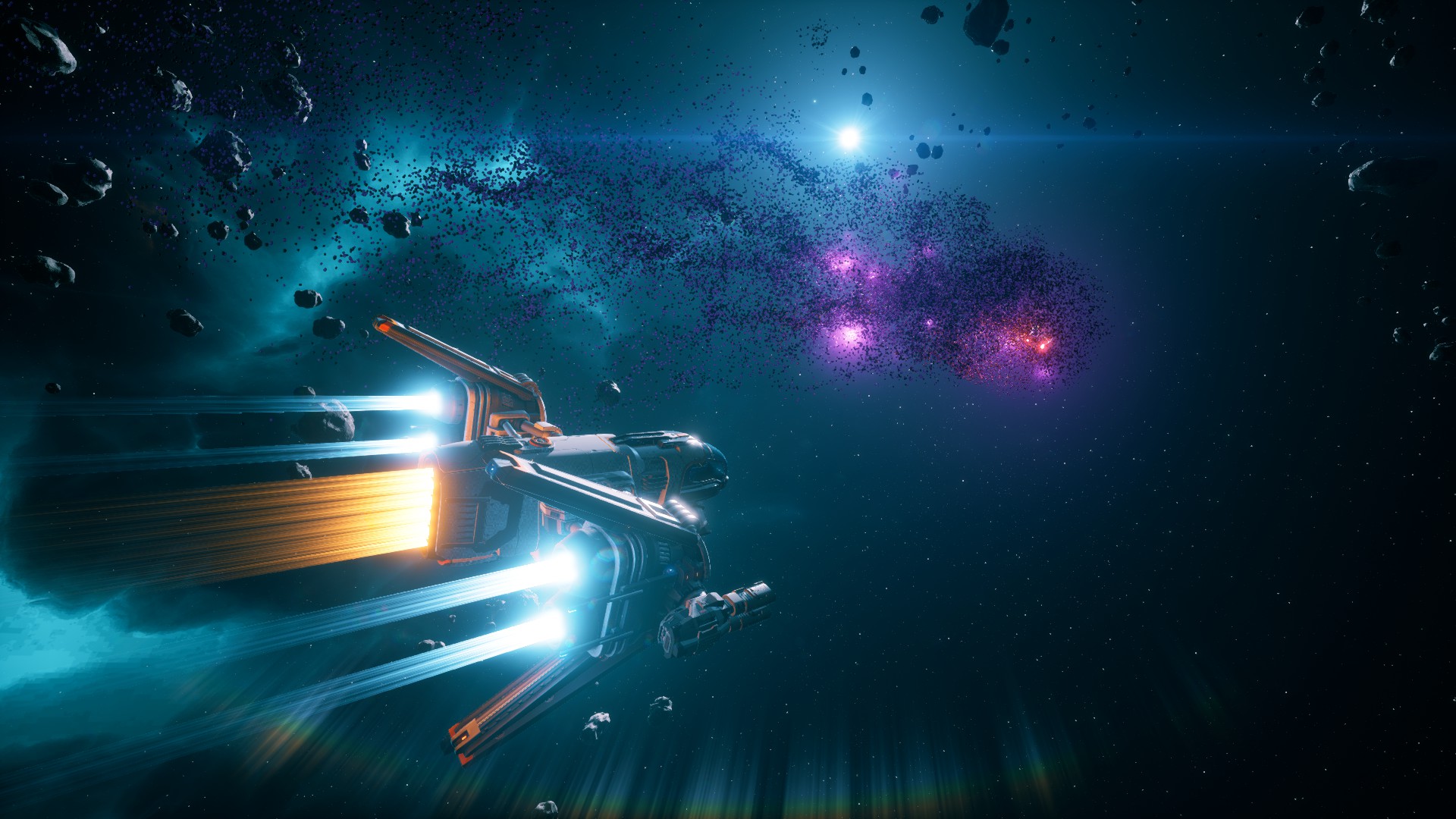
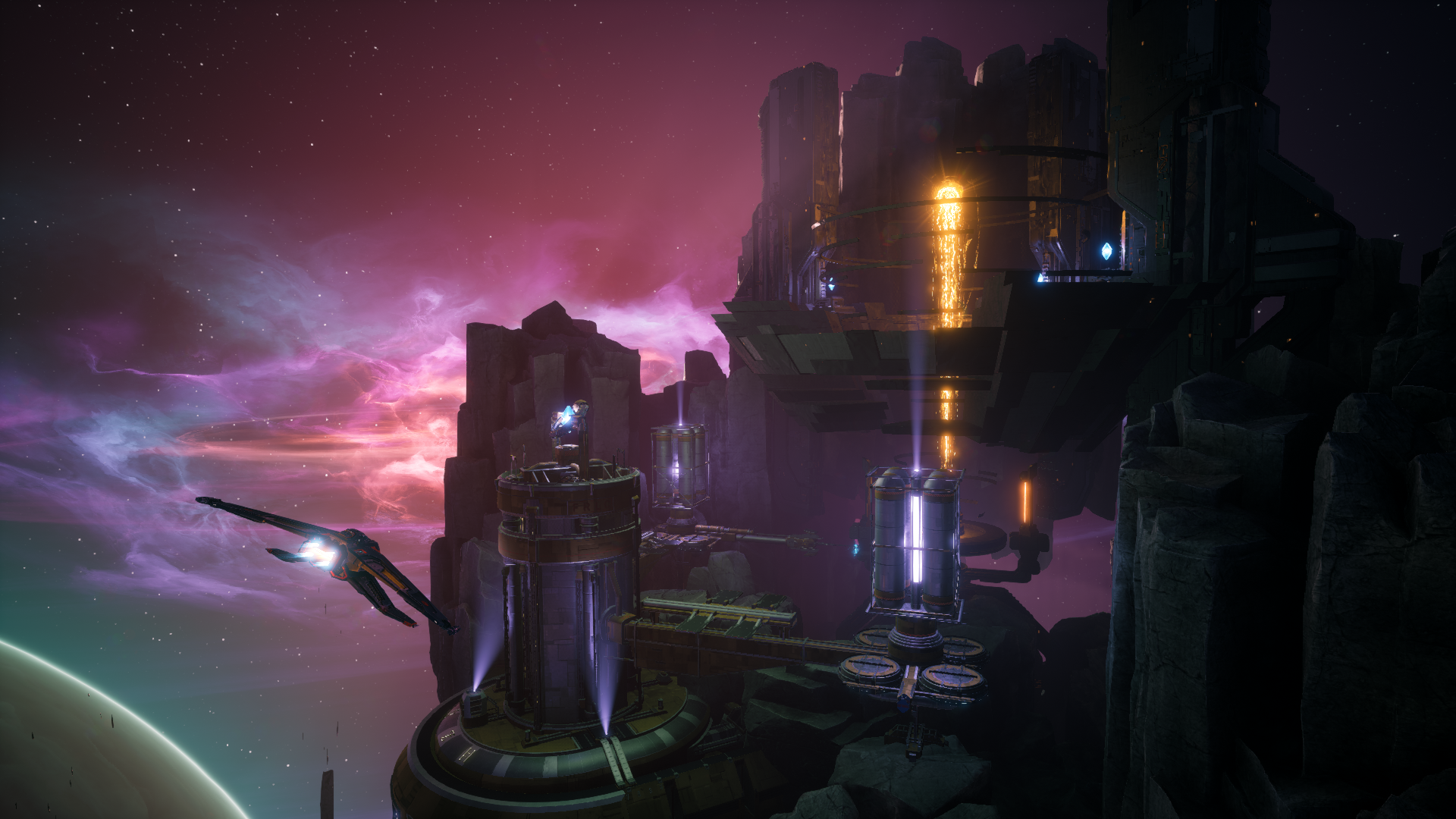
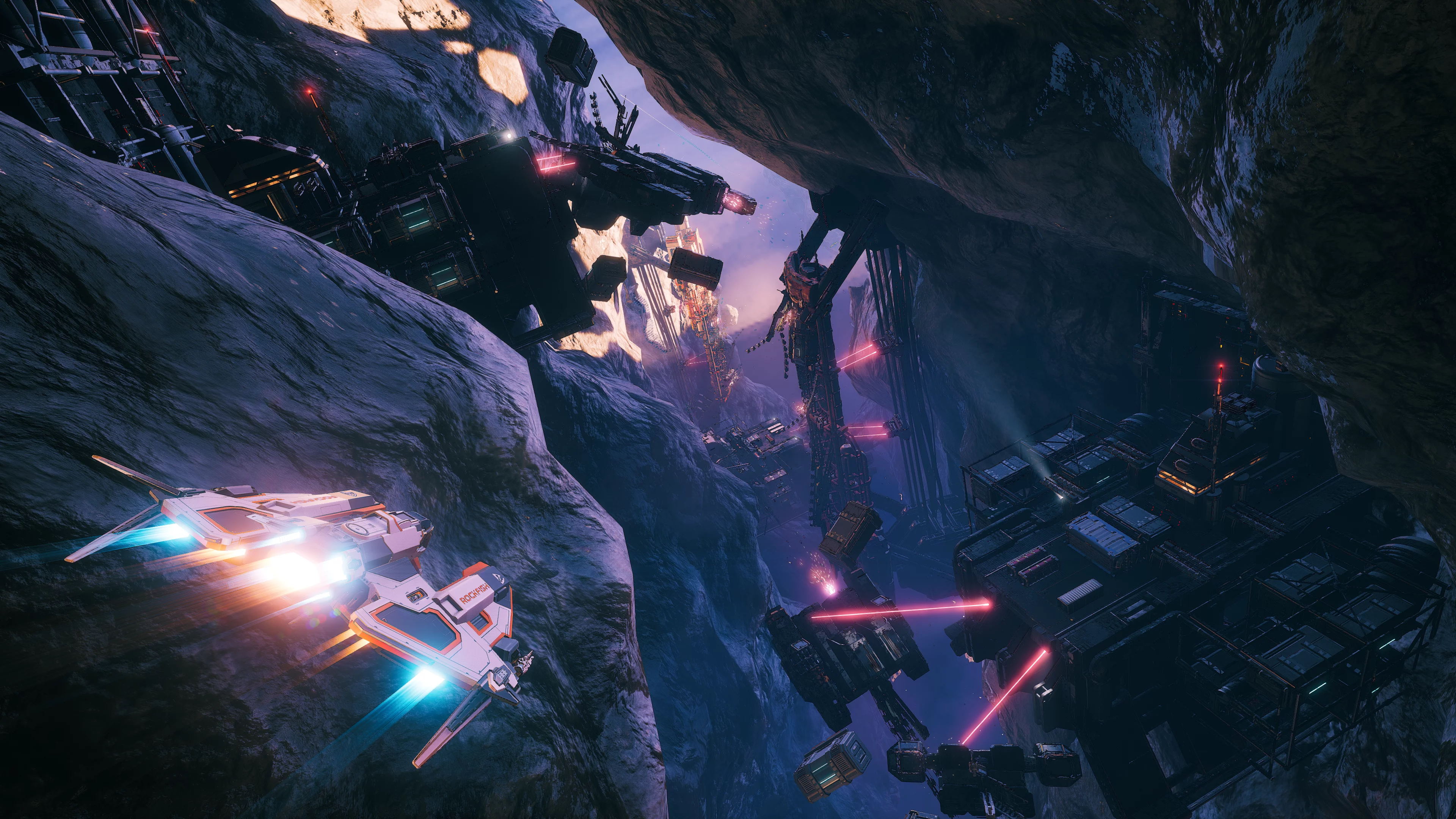
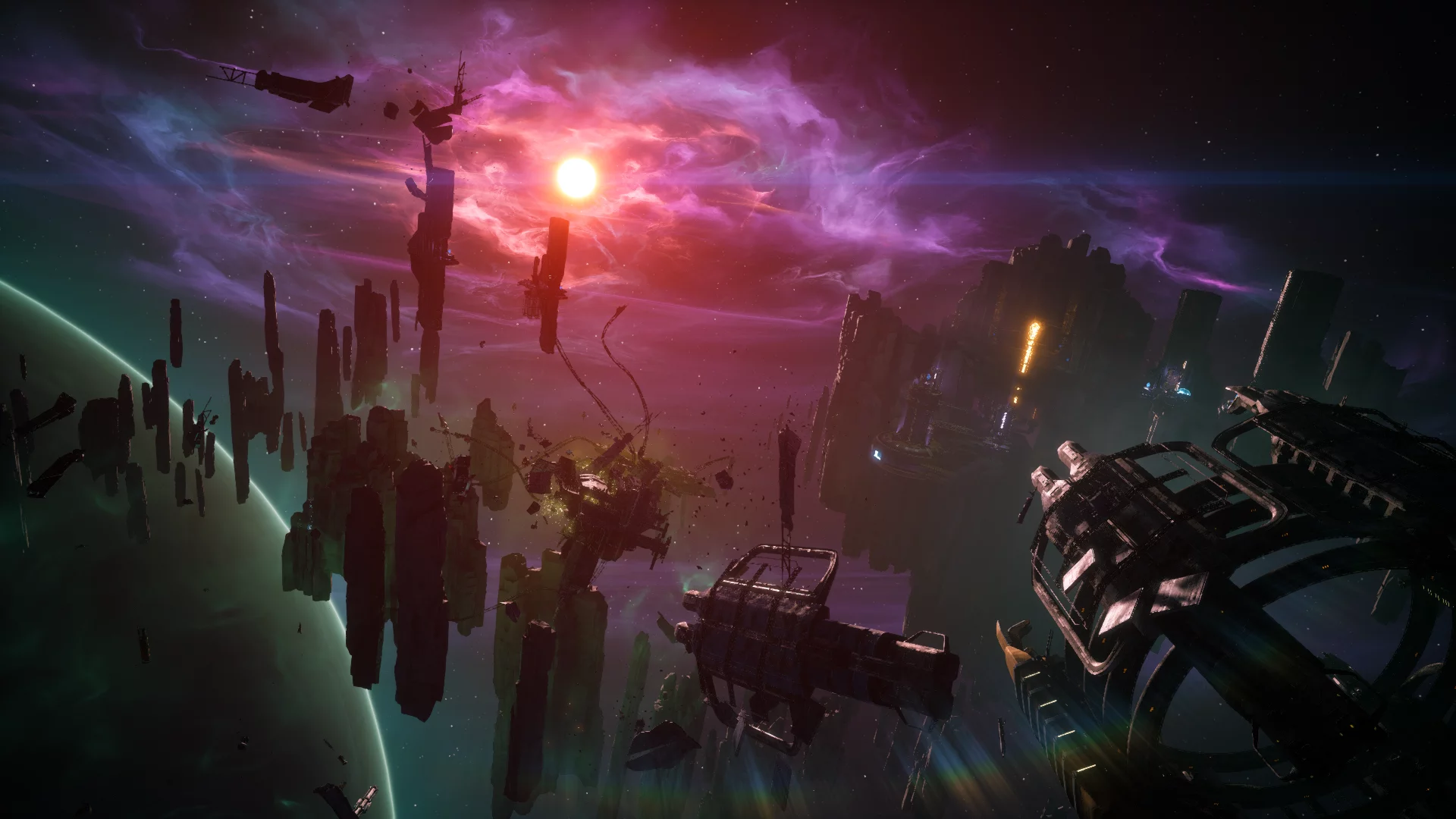
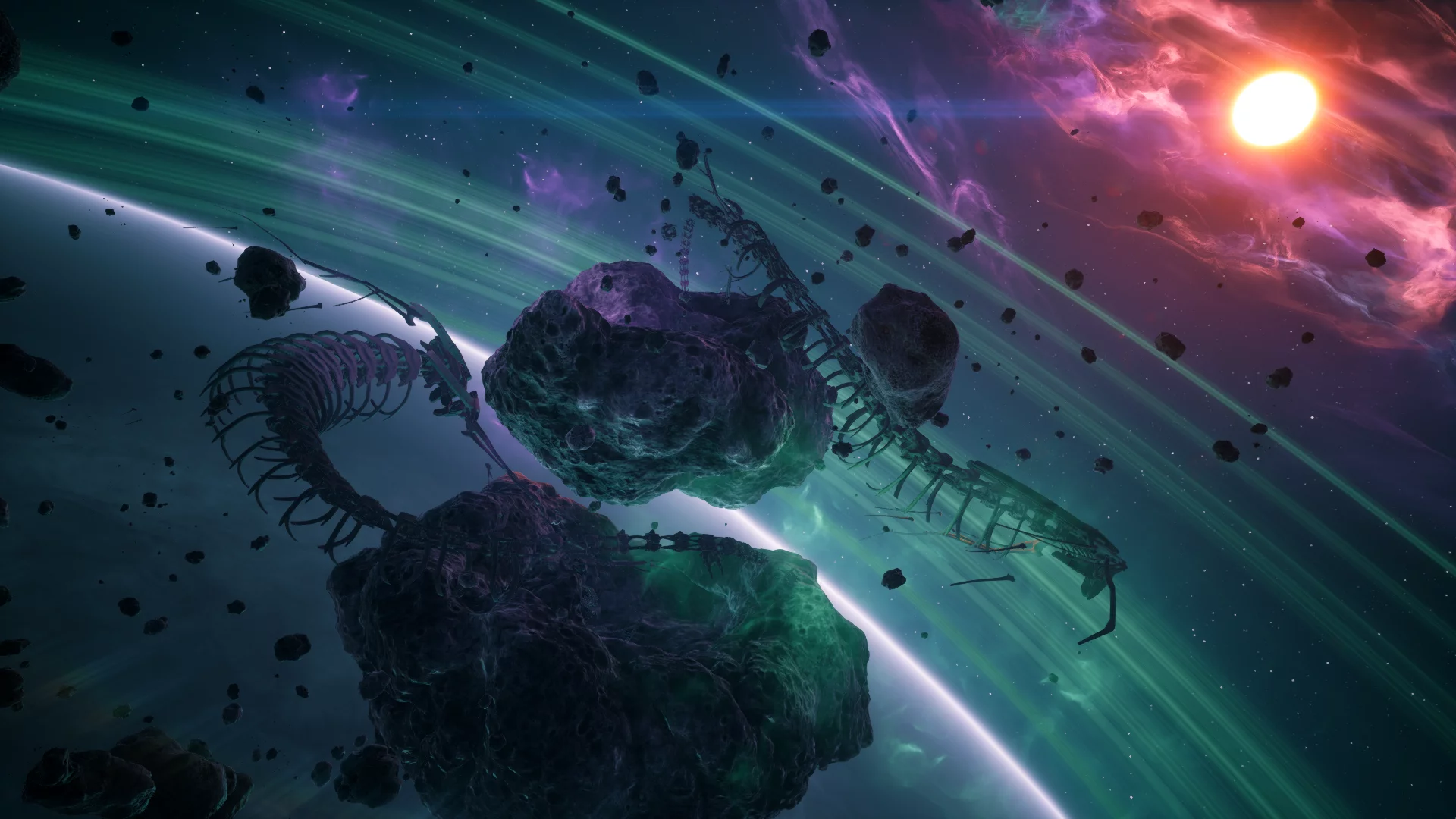
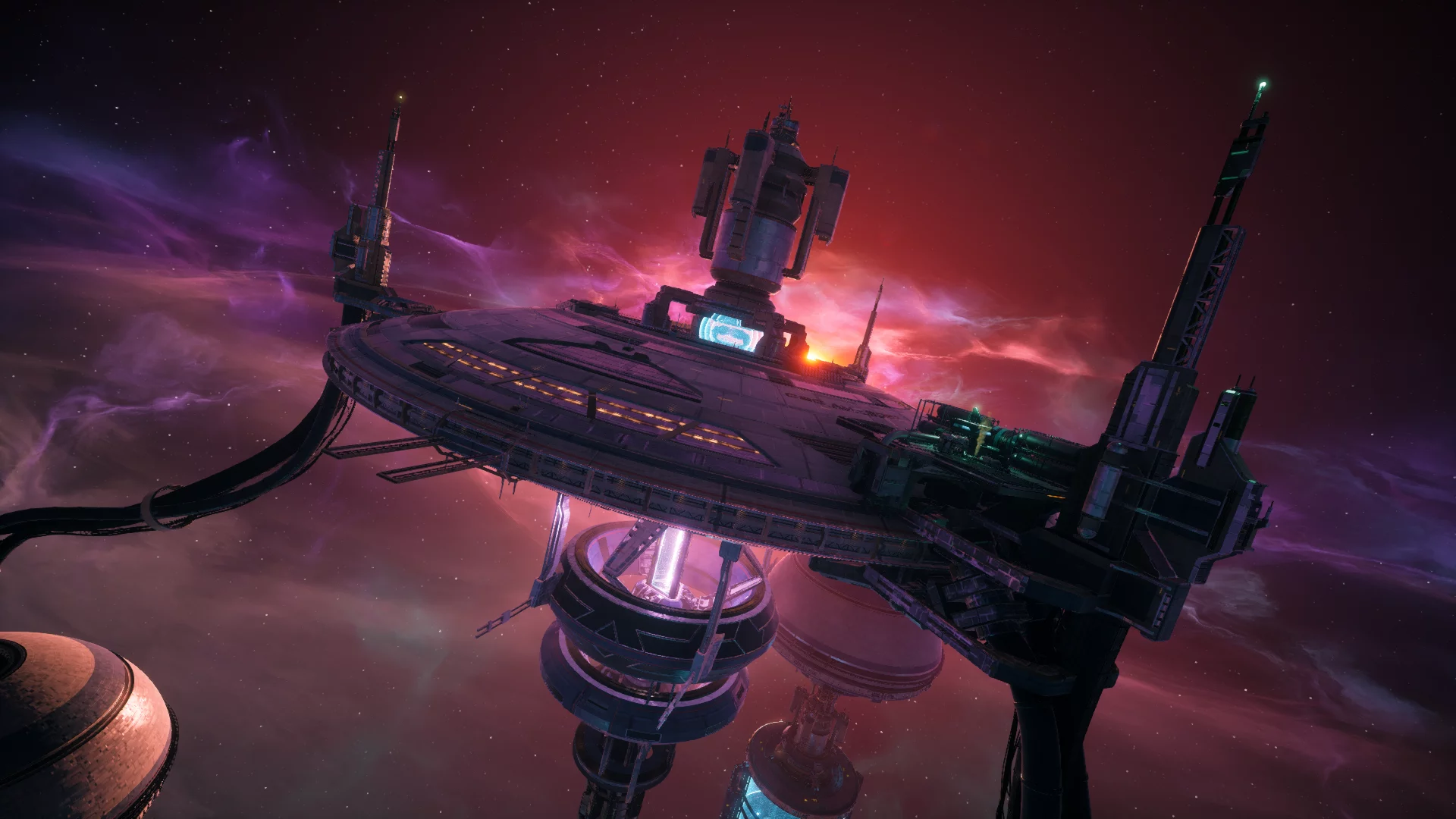

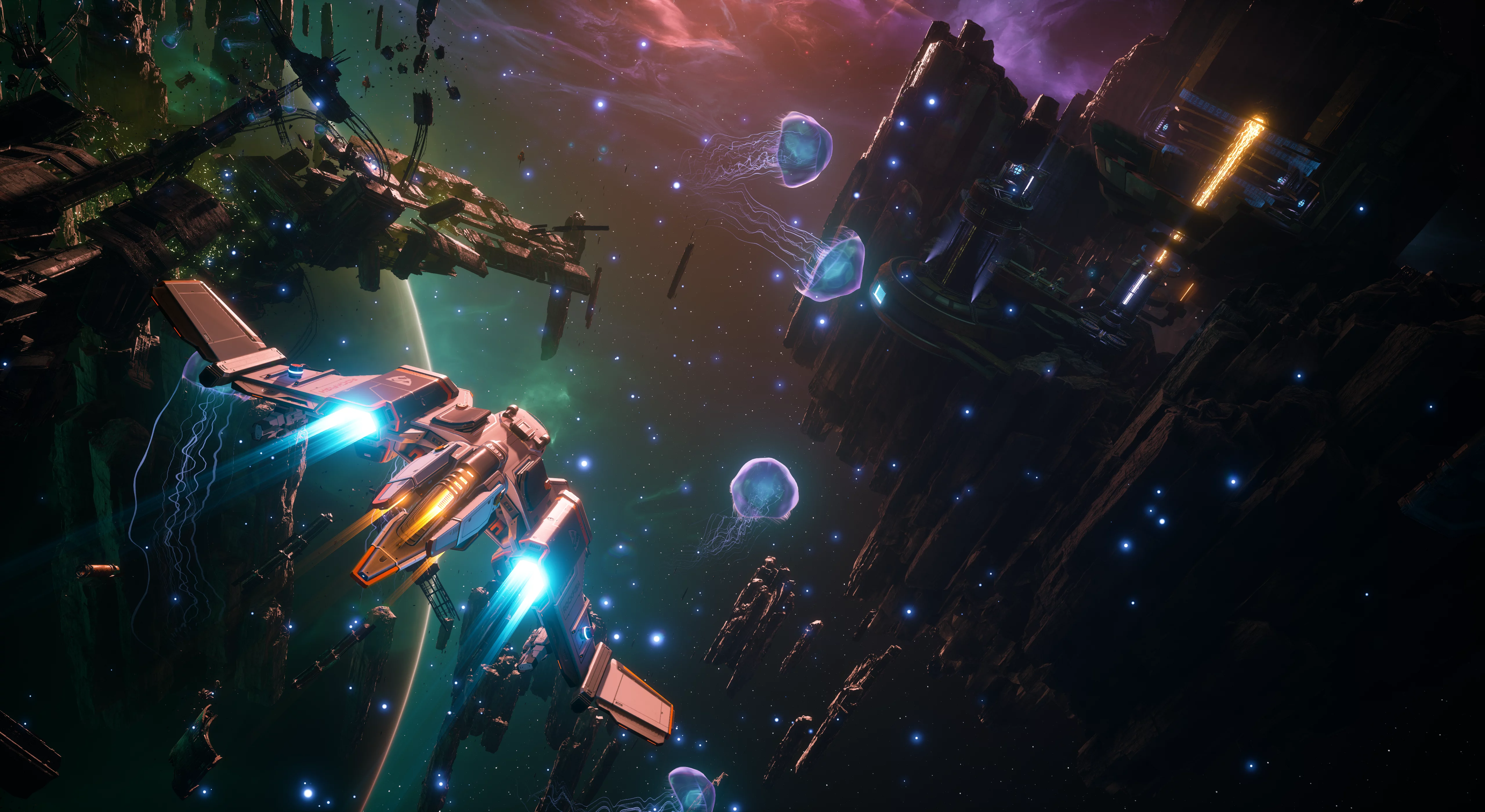
In the interest of full disclosure, VGamingNews was provided with a copy of the game in order to conduct this review.
Thanks for taking the time to read our review. If you’d like to support us further, please consider buying us a coffee!






